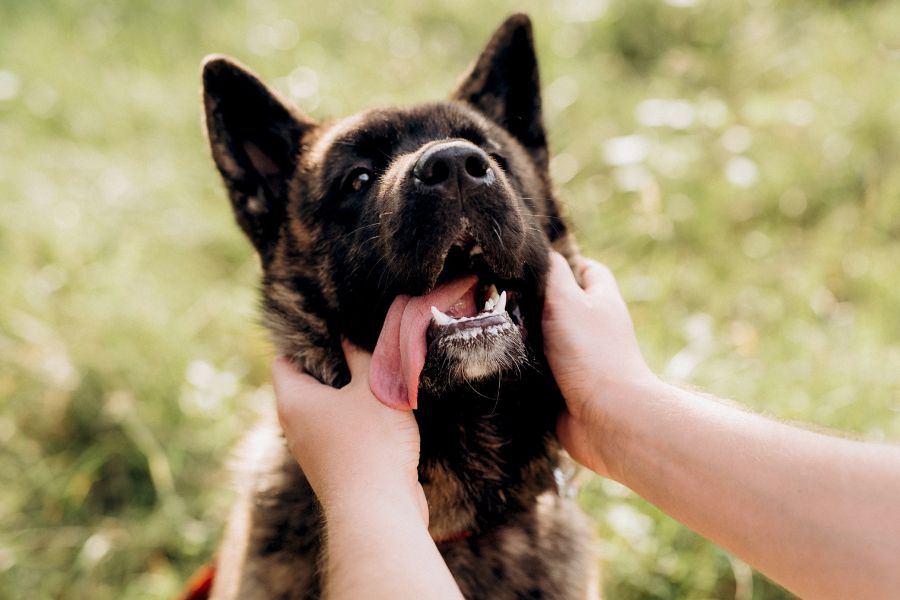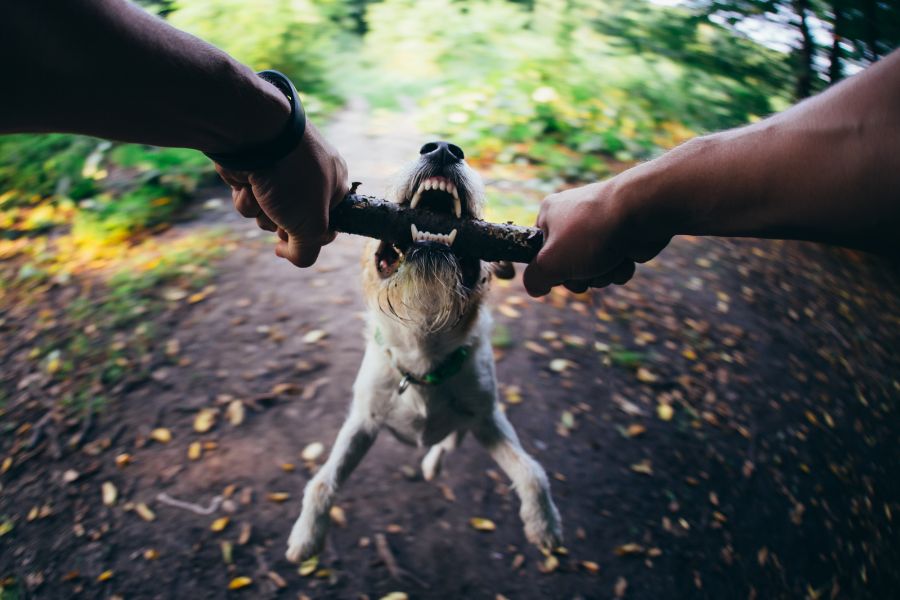It’s essential to know how to approach a dog and how to read basic signs that tell you how a dog feels around you. Paying attention to signs of aggression or uncertainty can keep you and others safe when you’re around a familiar or unfamiliar dog. Preventing dog bites involves a combination of education, responsible pet ownership, and understanding canine behavior. Here are a couple of tips on how to prevent dog bites.
Socialize Your Dog
If you are a dog owner, socializing your dog is one fundamental way to prevent aggression. Proper socialization from a young age is crucial to help dogs feel comfortable and confident in various situations and around different people and animals. Expose your dog to various environments, experiences, and social interactions to reduce fear and aggression.
Train Your Dog
Like socialization, training your dog offers the same benefits of building their confidence and comfort in any environment. Basic obedience training helps dogs understand commands and boundaries, making them more predictable and easier to manage. Teach your dog commands like “sit,” “stay,” “leave it,” “no bite,” and “come,” and reinforce positive behaviors with rewards and praise.
Supervise Interactions and Respect a Dog’s Space
If your dog is unfamiliar with another human or animal, always supervise their interaction. Always supervise interactions between dogs and children, especially young children who may not understand how to behave around dogs. Teach children and adults to approach dogs calmly and respectfully and to avoid disturbing dogs that are eating, sleeping, or caring for their puppies. Just like some humans, not all dogs like being approached. Always respect a dog’s space and boundaries. Avoid approaching or petting unfamiliar dogs without first asking the owner’s permission, and give dogs space if they seem uncomfortable or anxious.
Recognize Canine Body Language
Some dog body language signs are evident. Actions like barking or growling at you should be an obvious indication not to approach them. Learn to recognize the signs of stress, fear, and aggression in dogs, such as flattened ears, raised hackles, growling, baring teeth, and stiff body posture. If a dog displays these warning signs, give it space and avoid approaching or interacting with it.
Teach Children Dog Safety
As a responsible pet parent, you not only have to teach your dog good manners but also your children (if you have any). Educating children about how to interact safely with dogs is essential. You can teach them how to ask for permission before petting a dog, approach dogs calmly and from the front, avoid sudden movements or loud noises, and not disturb dogs while they’re eating or sleeping.

Provide Proper Care and Enrichment
Ensure your dog receives proper care, including regular exercise, mental stimulation, and veterinary care. A well-exercised and mentally stimulated dog is less likely to become bored, anxious, or frustrated, reducing the risk of aggressive behavior. Spaying or neutering your dog can reduce aggressive behavior and territorial tendencies, making them less likely to bite. Be sure to talk to your veterinarian about potential spay or neuter options.
Secure Your Property and Be a Responsible Owner
Please keep your dog securely confined within your property using fences, gates, or leashes to prevent them from wandering and potentially encountering unfamiliar people or animals. Be sure to stay up-to-date on local laws and regulations regarding dog ownership, including licensing, leash laws, and vaccination requirements. Always clean up after your dog and address any behavioral issues promptly with the help of a professional trainer or behaviorist.
Contact Luv My Sitter
Knowing how to prevent dog bites is crucial. Following these tips and practicing responsible pet ownership can help prevent dog bites and promote safe and positive interactions between dogs and people.
For your summer pet-sitting needs, call Luv My Sitter and let us show you why our customers keep coming back!

